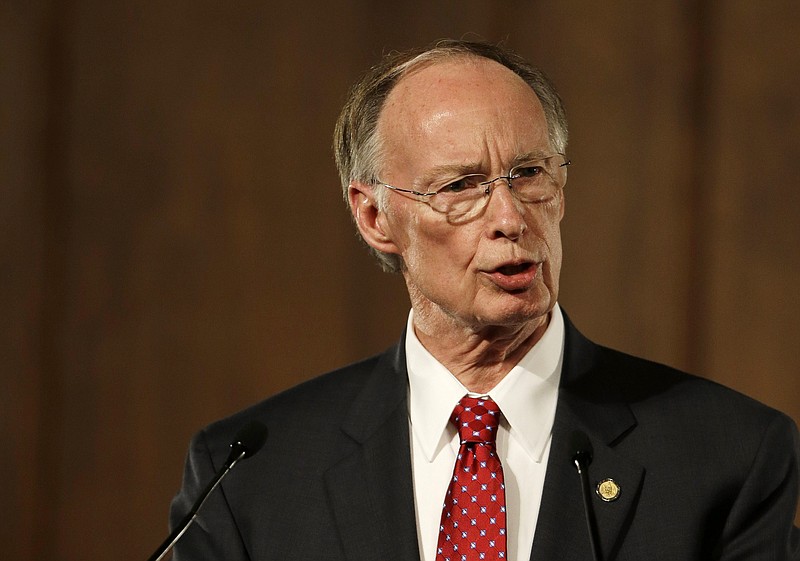MONTGOMERY, Ala. -- Planned Parenthood went to court Tuesday and asked a federal judge to prevent Gov. Robert Bentley's administration from ending Medicaid payments to the organization's two Alabama clinics.
The Republican governor last month said he was stopping the money, citing now-famous hidden camera footage shot by anti-abortion activists that implied the group was selling fetal tissue elsewhere to researchers.
Planned Parenthood Southeast attorney Melissa Cohen told U.S. District Judge Myron Thomson that Bentley didn't have a legal or quality of care reason to end the Medicaid contracts. Cohen said the accusations raised in the videos were "patently false" and didn't involve Alabama clinics.
"It misrepresents practices in unrelated Planned Parenthood affiliates in other states and does not relate in any way to Planned Parenthood Southeast," Cohen said.
The judge didn't immediately rule on a preliminary injunction to restore the money, but suggested the state explain to the organization why it was ending the funding, which has amounted to less than $5,000 from the state over the last two years for office visits and birth control pills and injections. Medicaid does not pay for abortions except for in rare circumstances.
The court hearing is part of the latest legal clash between Republicans and Planned Parenthood in the wake of the videos. Governors in Arkansas and Louisiana moved to block Medicaid funds to Planned Parenthood and the House of Representatives recently voted to block Planned Parenthood from getting federal funds for a year. That measure faces likely defeat in the Senate.
"I terminated the contract because of the deplorable practices that have been exposed in the Planned Parenthood organization," Bentley said in a statement issued Tuesday.
Alabama cited "concerns about the harvesting and sale of fetal tissue" in court filings as reason for the ending the Medicaid agreements.
"Recent reports suggest that Planned Parenthood practices in this regard are inconsistent with accepted standards," wrote John C. Neiman, an attorney representing Alabama.
Neiman told Thompson that the governor was within his rights to terminate the contracts and that an administrative appeal, not federal court, was the proper forum to challenge the termination.
However, Thompson noted that the state's letter to Planned Parenthood didn't explain the termination.
"To use an old phrase, Where's the beef? Where's the cause?" the judge said.
Thompson questioned if a way to resolve the federal lawsuit would be for the state to send Planned Parenthood a new termination letter naming the cause. That would trigger an appeal process in state court.
That outcome is similar to what is happening in Louisiana, where Gov. Bobby Jindal tried to block Medicaid dollars to Planned Parenthood. After a federal judge questioned whether Louisiana could end the agreements without a reason, the state cited Planned Parenthood Gulf Coast's $4.3 million settlement of false claims allegations in Texas as reason to kill its Louisiana Medicaid contract.
In August 2013, a Texas U.S. attorney's office announced a settlement with Planned Parenthood Gulf Coast in response to allegations the organization billed government programs for services that weren't medically necessary or that weren't provided.
